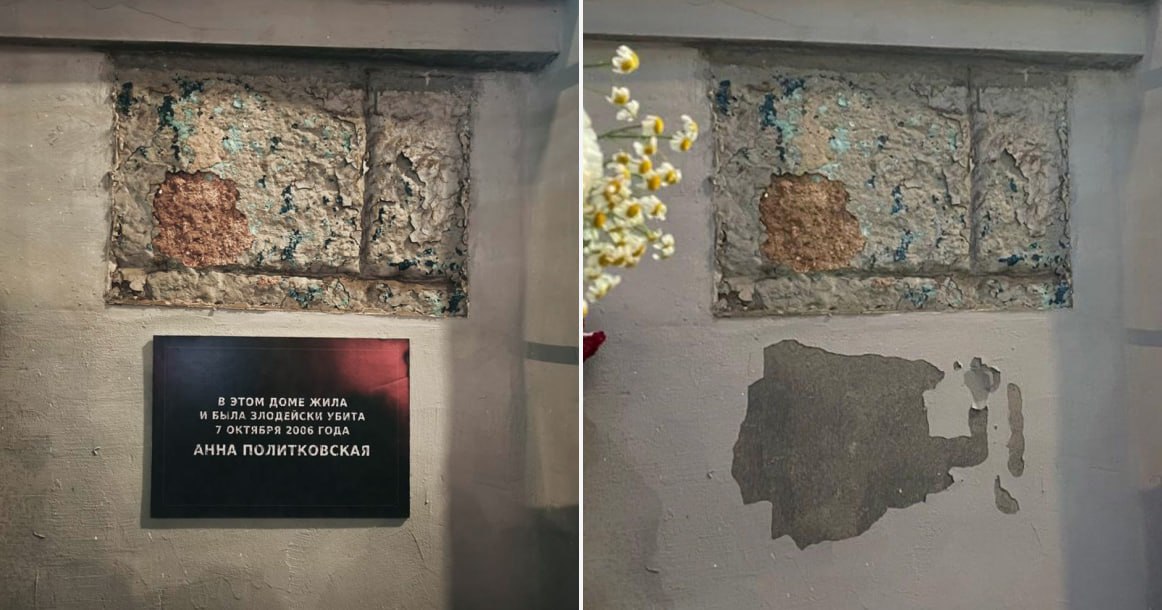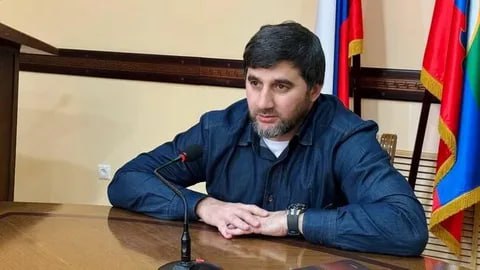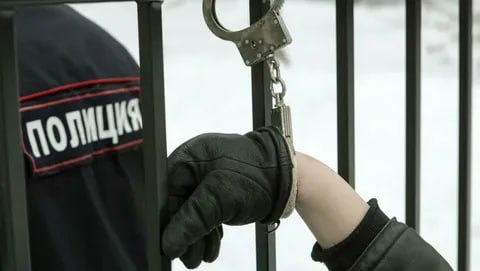A memorial plaque to journalist Anna Politkovskaya, installed on the Moscow building where she was killed, was destroyed twice in one day, Radio Liberty reported, citing the Telegram channel SOTA. The toppled and smashed temporary plaque bore the same inscription as the original.
30th Anniversary of the Storming of Grozny

On this day, exactly 30 years ago, the Russian authorities attempted an armed overthrow of the first president of the Chechen Republic of Ichkeria, Dzhokhar Dudayev, by the forces of the so-called Chechen opposition.
On November 26, 1994, the so-called Chechen opposition, represented by the Provisional Council, supported by the Kremlin, attempted to seize the capital of the republic and overthrow President Dzhokhar Dudayev. Russian military personnel recruited by the Federal Counterintelligence Service (FSK) - now the FSB - in units of the Moscow Military District also took part in the storming of the Chechen capital.
The attempt to seize Grozny ended in a resounding failure: units of the Chechen security forces first allowed columns of tanks and infantry fighting vehicles to enter the city center, and then destroyed them. On November 29, the Russian Security Council officially decided to introduce Russian troops into Chechnya.
Long before these events, Grozny had repeatedly stated that the FSK RF was interfering in the internal affairs of Chechnya. Moscow categorically denied all accusations.
Thus, since September 1994, the RF had been actively supplying the anti-Dudayev opposition with everything it needed. The support included financing in the amount of 150 billion rubles, the supply of military equipment, ammunition and combat helicopters. In addition, Russian troops began to concentrate in the areas adjacent to Chechnya.
On November 26, 1994, the final offensive on Grozny took place. The day before, the troops that had surrounded the city went on the attack early in the morning from the north and northeast. At 9 a.m., a tank assault on the presidential palace began. Only security was in the building, and Chechen fighters were stationed on the roofs of nearby houses.
According to Russian sources alone, about 1,200 people and about 40 tanks took part in the assault. The Chechen side claimed that these figures were understated. Dozens of so-called opposition fighters and mercenaries from the Russian army were killed, dozens were captured. Despite the fact that the prisoners admitted that they were Russian servicemen, the Russian Defense Minister, as well as the Ministry of Internal Affairs and the Federal Security Service, publicly denied their involvement in the storming of Grozny. The official position of the Russian authorities did not change, even when Dudayev threatened to shoot the prisoners if they did not confess. However, as a result of a series of meetings with State Duma deputies, the CRI authorities still released 20 prisoners.
Video footage of Russian military equipment blown up and burning on the streets of Grozny, the bodies of the dead, as well as Russian soldiers and officers captured by Chechnya, was broadcast by many Russian and international media. In the recordings, the prisoners spoke in detail about which military units they were from, who recruited them and how, how the preparations for the storming took place, and much more. After this, the FSK had no choice but to admit its involvement in what happened.
On November 29, the Security Council of the Russian Federation, under the leadership of Boris Yeltsin, decided to conduct a military operation against the Chechen Republic of Ichkeria. Thus began the first Russian-Chechen war.
Последние новости



